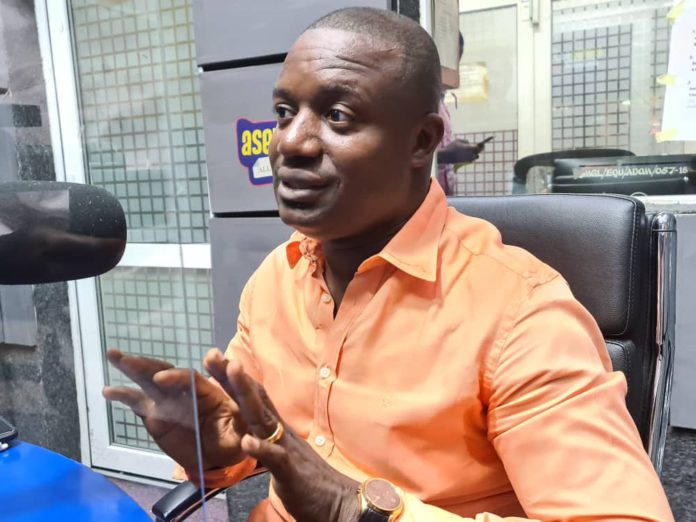Ranking Member on Parliament’s Mines and Energy Committee, John Jinapor, has said that the Finance Ministry’s decision to put all of the Electricity Company of Ghana’s (ECG) revenue collected into a single account does not solve the current power crisis.
This comes after Finance Minister, Dr Mohammed Amin Adam, disclosed that a single account has been established for ECG’s revenue collection.
At a press conference on the sidelines of the IMF and World Bank Spring Meetings in Washington, DC, USA, Dr Amin Adam said the move will ensure that tracing revenue collected by the ECG will not be a challenging task.
But speaking on Newsnight on Joy FM on April 22, John Jinapor said the current power crisis is a result of challenges in securing funds to procure fuel that has resulted in intermittent power cuts.
He stated that the solutions given by the Finance Minister will do little to solve the power crisis if funds are not raised to purchase fuel.
“First of all, if you decide that all ECG revenue should go into one bank account, how does that resolve the problem? The PURC tracks every penny. I’m telling you that the PURC has a foothold on all the revenues that come to ECG. The challenge is the issue of losses. Secondly, we are talking of an immediate challenge of fuel.”
“So the question is how do we get money today to buy the fuel? That is what Ghanaians are interested in. Not long-term measures. As for the long-term measures, they are good. You can implement them. But as we speak today, today there’s going to be a deficit of 500 megawatts on account of the inability to procure fuel. So what is the Finance Minister doing to have these utilities to buy the fuel?” he quizzed.
Additionally, Mr Jinapor noted that the government has contributed to the energy crisis after failing to consistently pay its portion of the power consumed by government agencies such as those in the health sector.
“…GH₵200 million every month, they fail to pay that. If the Finance Minister pays that money today, GH₵1.6 billion, the utilities can buy fuel. I’m hearing the Finance Minister say that they are negotiating with the IPP [Independent Power Producers], and if they negotiate, they will make savings.”
“During the State of the Nation Address, the President was categorical that they have done the negotiations and even mentioned savings. So even credibility is a problem,” he said.
The Yapei-Kusawgu MP stated that it is prudent to have the Finance Minister re-prioritize government expenditure and help utility companies and power producers buy fuel within the shortest possible time.
This, he believes, would help resolve the current power crisis and give room for the government to implement its medium to long-term measures.
The intermittent power outages continue to have a devastating effect on businesses across the country.
Meanwhile, President Nana Akufo-Addo, in a recent address in Kumasi, acknowledged the recent power outages, commonly referred to as “dumsor,” experienced across various parts of Ghana.
He expressed commitment to addressing this issue, recognizing the inconvenience it poses to the Ghanaian people.
Also, at a press conference in Washington DC, Finance Minister Dr Amin Adam, among other things, revealed that the government has begun auditing the Cash Waterfall Mechanism through which revenue collected from the electricity market by ECG is shared across the value chain.
According to Dr Adam, addressing the cash waterfall mechanism challenges will bring accountability and transparency to revenue collections as part of measures to solve the energy sector challenges.

